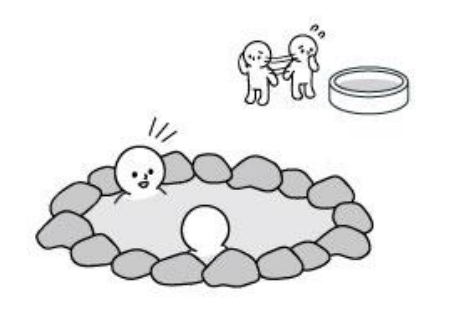First Steep/OG
| First Steep | |
| Contributors | Takashi Iba, Toko Miyake, Miyuko Naruse, Natsumi Yotsumoto |
|---|---|
| Last modification | May 15, 2017 |
| Source | Iba, Miyake, Naruse & Yotsumoto (2009)[1]; Iba (2010)[2] |
| Pattern formats | OPR Alexandrian |
| Usability | |
| Learning domain | |
| Stakeholders | |
When you begin to research
When you begin to study
When you choose classes or seminars
When you want to be outstanding in your field
When you are doing fieldwork
Hesitation bears nothing.
- • People tend to be passive for what they don't know.
- • People often get to understand something by practicing.
- • People often figure out the reason of their decision while they are in action, even if they decided it with their intuition.
Before you begin to do something new, you always think of the reason for it and waste much of time.
- • First, decide roughly the theme of your research or activity. At this time, you can believe your intuition even if you can't find a clear reason.
- • Join the seminar that seems to be interesting. Go to the field and spend time in there.
- • Think all over again about your research or activity on a basis of your feelings through this process.
You will come up with new ideas and thoughts. You may find a brilliant book, or may meet a remarkable teacher.
Daigo was eager to start doing a research, but he couldn't decide the theme of research. That is because he thought he should have had a certain reason of choosing the theme. However, he realized he couldn't start it with considering the reason. Therefore he started a research of education, because he felt that seemed to be just “interesting”. He worked so hard, and he noticed that reason why he chose the theme is getting clear as he keeps on research. Finally, he was able to consider his future work and his research so seriously.
Stop “acting after thinking”, and do Thinking in Action (Thinking in Action). This is the very spirit of First Steep (First Steep). It is better to start Mimic Learning (Mimic Learning) and be a Good Learner (Good Learner), when you begin a new research or activity. Furthermore, you can see the actual problem by Field Diving (Field Diving).
References
- ↑ Iba, T., Miyake, T., Naruse, M., & Yotsumoto, N. (2009).Learning patterns: A pattern language for active learners. In Proceedings of the 16th Conference on Pattern Languages of Programs (PLoP 2009).
- ↑ Patlet mentioned in Iba, T. (2010). Designing a Pattern Language for Creative Learners.
